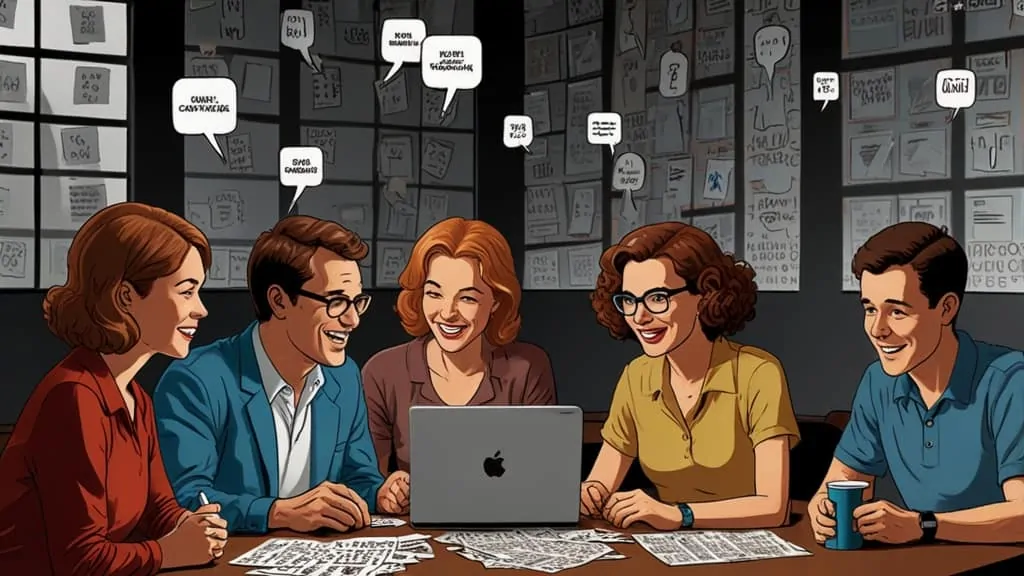
The New York Times crossword is famous for its wit, difficulty, and occasional ability to stump even the most seasoned solvers. But every now and then, a clue comes along that stirs up more than just brain cells—it generates buzz, debate, and confusion. One such clue making waves is “pesky little twerp NYT.”
If you’ve encountered this clue recently, you’re not alone in wondering what exactly it means, where it came from, and why it’s causing such a stir among crossword enthusiasts.
In this article, we’ll unpack the clue’s meaning, its cultural undertones, why it’s controversial for some solvers, and where it fits in the broader history of tricky NYT crossword entries.
What Does “Pesky Little Twerp” Even Mean?
First, let’s break down the phrase itself.
-
“Pesky” implies someone who is annoying or irritating.
-
“Little twerp” is a somewhat playful insult referring to a person—often small, weak, or inconsequential—who behaves in an annoying way.
Put together, “pesky little twerp” is a colorful phrase, almost cartoonish in tone, used to describe someone who’s being especially bothersome or immature.
In the context of the New York Times crossword puzzle, such phrases are often crafted to mislead or amuse solvers. It’s a perfect example of how informal language gets woven into formal puzzles to add flair and challenge.
The Answer That Sparked It All
While the clue “pesky little twerp NYT” might sound vague, its answer is usually something colloquial like:
-
IMP
-
BRAT
-
URCHIN
These are short, punchy answers that match the clue in spirit—typically used to describe mischievous children or annoying characters.
But the real intrigue is how subjective the clue feels. What one person might consider a “pesky little twerp,” another might see as harmless or even endearing. That emotional ambiguity is what makes this clue so fun—and frustrating—for puzzle solvers.
Why the Clue Has Sparked Online Debate
As the NYT puzzle community grows, so does online discussion about each day’s puzzle. Clues like “pesky little twerp” tend to trend for several reasons:
-
Uncommon Language: It’s not a phrase you hear every day, especially among younger solvers or non-native English speakers.
-
Subjective Tone: Unlike clues with clear definitions, this one leaves room for interpretation.
-
Playful Insult: Some solvers see the phrase as humorous, while others find it unnecessarily pejorative.
A growing number of online users have shared their experiences on forums like Reddit and Twitter, calling the clue both “hilariously spot-on” and “impossible to guess without context.”
For a deeper dive into the buzz surrounding this clue, check out this great external explanation from Wisp Willow:
👉 Read more here
NYT Crossword Clues: A History of Mischief
The New York Times Crossword has a long-standing tradition of playful and mischievous language. Will Shortz, the editor of the puzzle since 1993, has often said that he values cleverness and surprise over straightforward definitions.
Clues like:
-
“Takes in” = EATS
-
“Leaves quickly?” = TEA
-
“Jerk, say” = SODA
All of these are examples of wordplay or double meaning, which is the beating heart of what makes NYT puzzles such a beloved challenge.
“Pesky little twerp” fits neatly into this tradition, combining humor with subtle word knowledge to create that delightful “aha!” moment.
Tips for Tackling Tricky Clues Like This One
Whether you’re a seasoned solver or a crossword newbie, clues like “pesky little twerp” can be daunting. Here are a few tips to handle them better:
-
Think Informal: Clues written in conversational tone often point to slang or colloquial answers.
-
Check the Crossword’s Theme: Sometimes these types of clues fit a puzzle’s broader theme—especially in Thursday puzzles or themed Sunday editions.
-
Look at Crosses: Use the letters from other solved clues to narrow down possibilities.
-
Trust Your Gut: If a word like “brat” or “imp” pops into your head, try it! Even a wild guess might get you on the right track.
Final Thoughts: Why “Pesky Little Twerp NYT” Will Be Remembered
The clue “pesky little twerp NYT” may seem like a throwaway line in a sea of cryptic crossword entries, but it captures so much of what makes crosswords beloved: wit, language play, and a little bit of attitude.
It also reminds us that crosswords are more than puzzles—they’re cultural artifacts. They reflect the humor, values, and wordplay of their time. Whether you were stumped by the clue or laughed out loud at its cheeky tone, you’ve shared in a moment of linguistic mischief crafted by one of the world’s most famous puzzle platforms.
And if you’re still puzzling over what it all means, you’re not alone—and that’s the beauty of it.





Those are yours alright! . We at least need to get these people stealing images to start blogging! They probably just did a image search and grabbed them. They look good though!